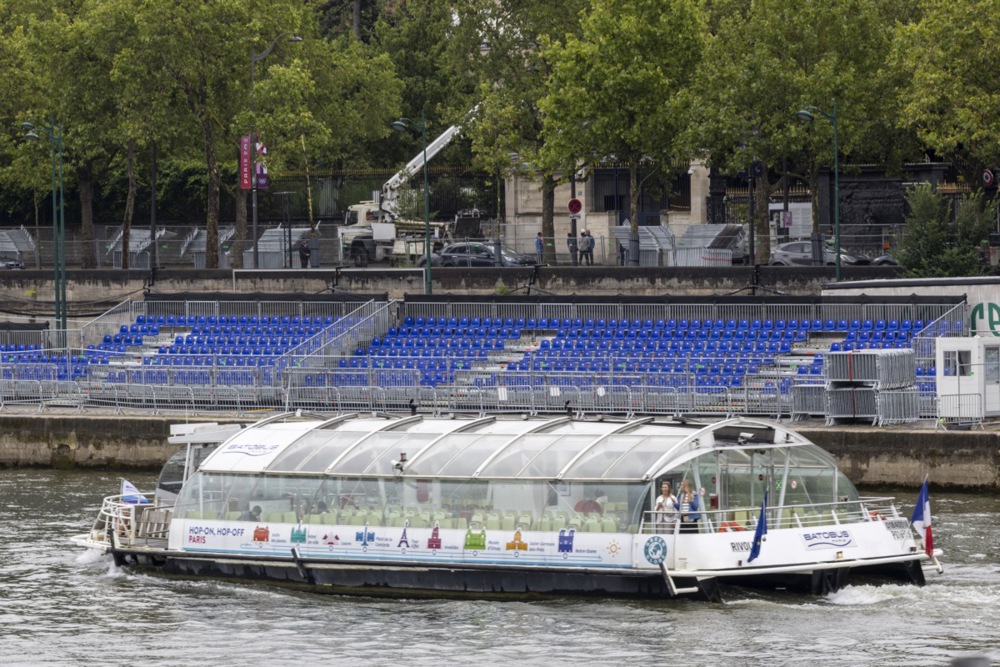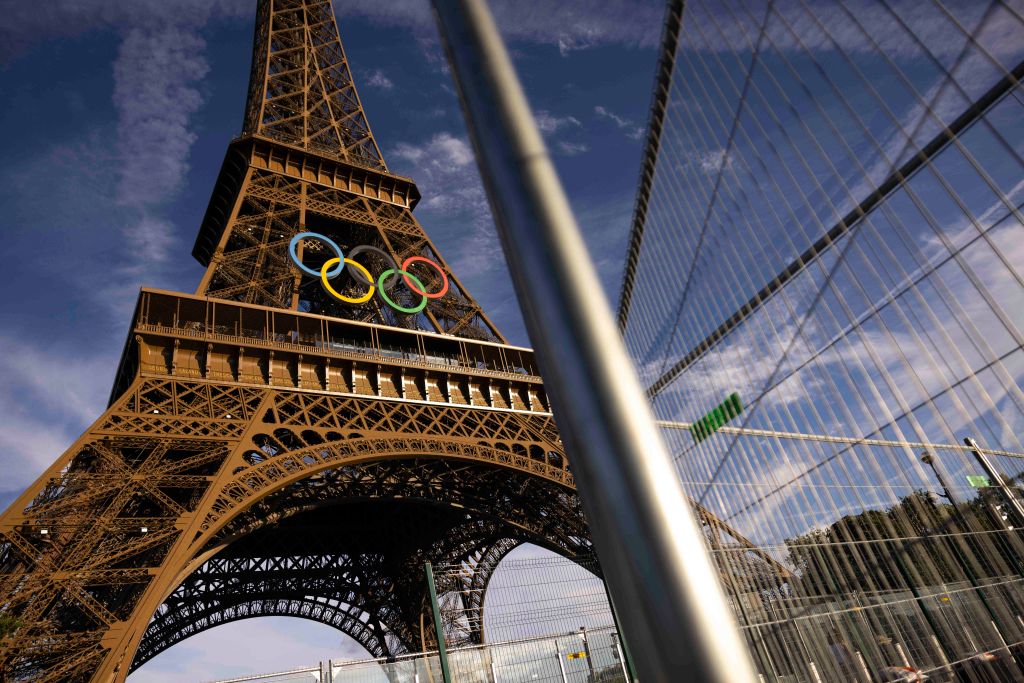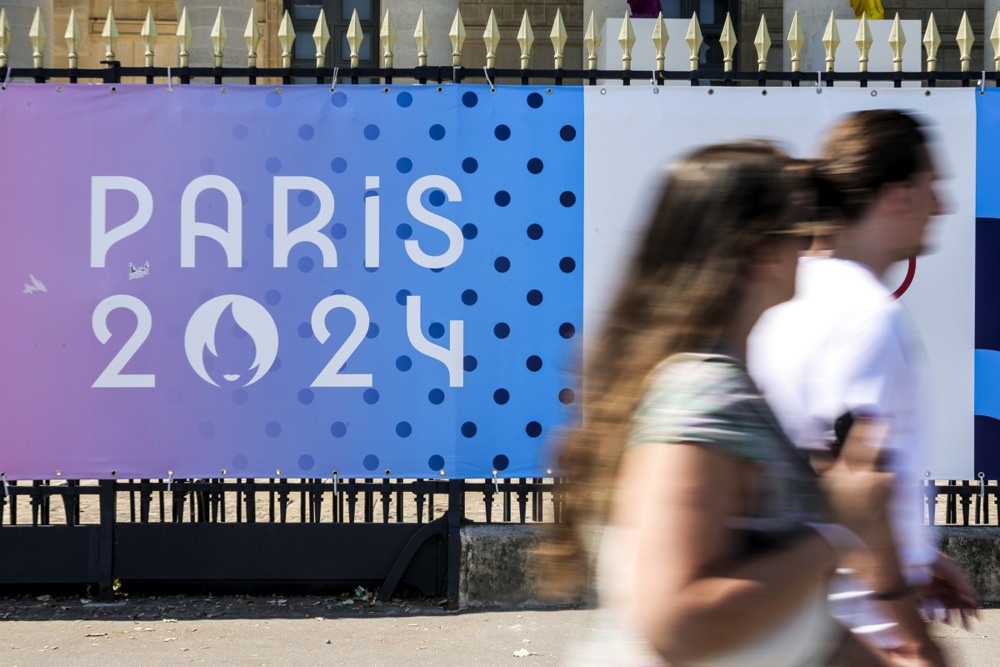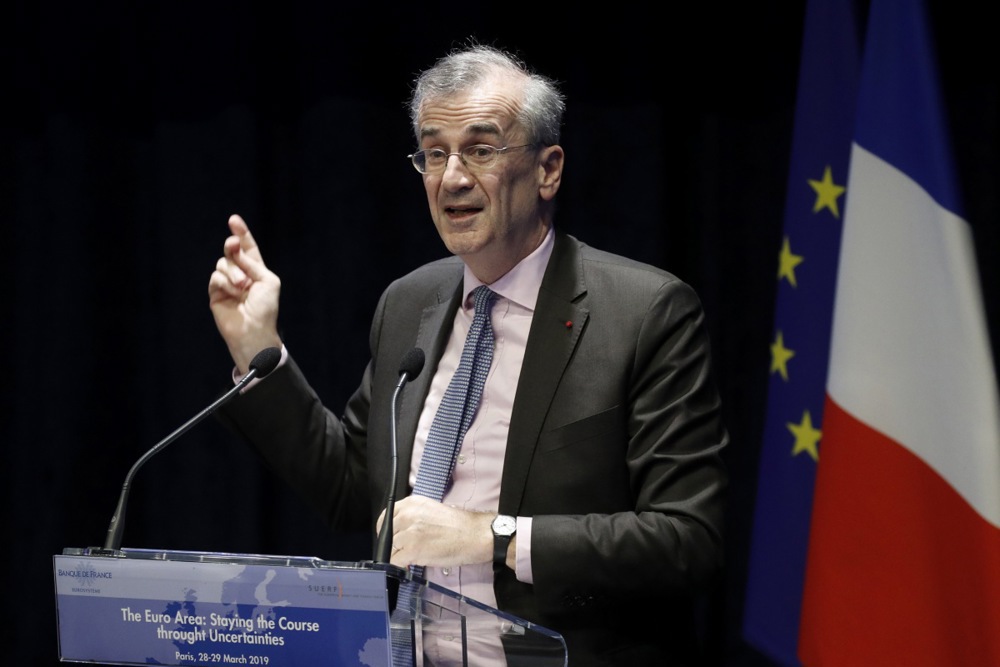Just hours before the opening ceremony of the Olympic Games in France, the TGV network, the country’s intercity high-speed rail service, has apparently been deliberately targeted.
The “massive attack” has affected 800,000 passengers, SNCF Chief Executive Jean-Pierre Farandou said on July 26 at a press briefing.
Three separate fires were reported close to the tracks on the Atlantic, Northern and Eastern high-speed rail lines. The incidents have caused severe disruption to train traffic throughout the network.
Paris’ Montparnasse station, a major hub for Westbound trains, was experiencing significant difficulties. A large number of trains have had to be diverted or cancelled.
The Belgian railway operator also announced disruption to rail traffic between Brussels-Midi and Paris Nord and Paris Charles de Gaulle airport. Delays of 45 to 90 minutes could be expected and the problems may last all day, the transit company said.

On the morning of July 26, the SNCF, France’s national state-owned railway company, said: “Last night, SNCF was the victim of several concurrent malicious acts affecting the LGV Atlantique, Nord & Est.
“Arson attacks were started to damage our facilities. The South East LGV is not affected, a malicious act [there] has been foiled.
“Our teams are on-site to carry out the diagnosis and begin repairs.”
The SNCF asked travellers who could postpone their trips not to go to stations and promised to refund or exchange disrupted journeys.
All customers were to be informed by text message of the situation regarding their train journeys.
The travel chaos came just as many people were wanting to get to Paris for the opening ceremony of the Games.
Some trains have been diverted to conventional, non-high-speed lines, as was the case for the morning service between Lille and Strasbourg.
⚠️Suite à cette attaque massive visant à paralyser le réseau des lignes à grande vitesse, un grand nombre de trains sont détournés ou supprimés. Les voyageurs concernés seront contactés par mail ou SMS. Nous demandons à tous les voyageurs qui le peuvent de reporter leur voyage et… https://t.co/yt5cCtHSqW
— SNCF Voyageurs (@SNCFVoyageurs) July 26, 2024
This situation was predicted to last at least until July 28 while repairs were being carried out and it was expected normal traffic should resume the following day.
Laurent Nunez, the Paris Police Prefect, announced heightened security measures and extra manpower across the Paris railway network to prepare for an influx of passengers.
Pour vous donner une petite idée du bordel en Gare Montparnasse ce matin (meme si on ne se rend pas trop compte).
Je n’ai pas vu ca depuis l’annonce du confinement par Macron en mars 2020.
Bon courage à la #SNCF et aux voyageurs ! pic.twitter.com/XAxJOxwxRk
— PresidentGab (@PresidentGab) July 26, 2024
Patrice Vergriete, Transport Minister of France, said the attacks were “co-ordinated acts of malice
“I strongly condemn these criminal actions, which will compromise the holiday departures of many French people. A big thank you to the SNCF teams, on the bridge to restore traffic conditions as quickly as possible,” he said.
Images on social media showed the Montparnasse train station packed with stranded travellers as the Olympics were due to start and as the peak holiday season began.
?? 7h30 Gare Montparnasse à Paris, 1er jour des JO. Plus de trains. ? #sncf pic.twitter.com/PZYl9QF7n9
— 75 Secondes ?️ (@75secondes) July 26, 2024
In May, three European intelligence services warned that Russia was plotting numerous sabotage acts across Europe.
They said Russia had prepared covert bombings, arson attacks and other damage to infrastructure on European soil, directly and via third parties.
In April, the Czech Republic transport minister, Martin Kupka, also warned that Russia was trying to sabotage European railways by hacking into their signalling systems.
On Friday, French newspaper Le Figaro reported that the modus operandi used to disrupt the SNCF network is similar to the actions of the far-left, according to a security source.





